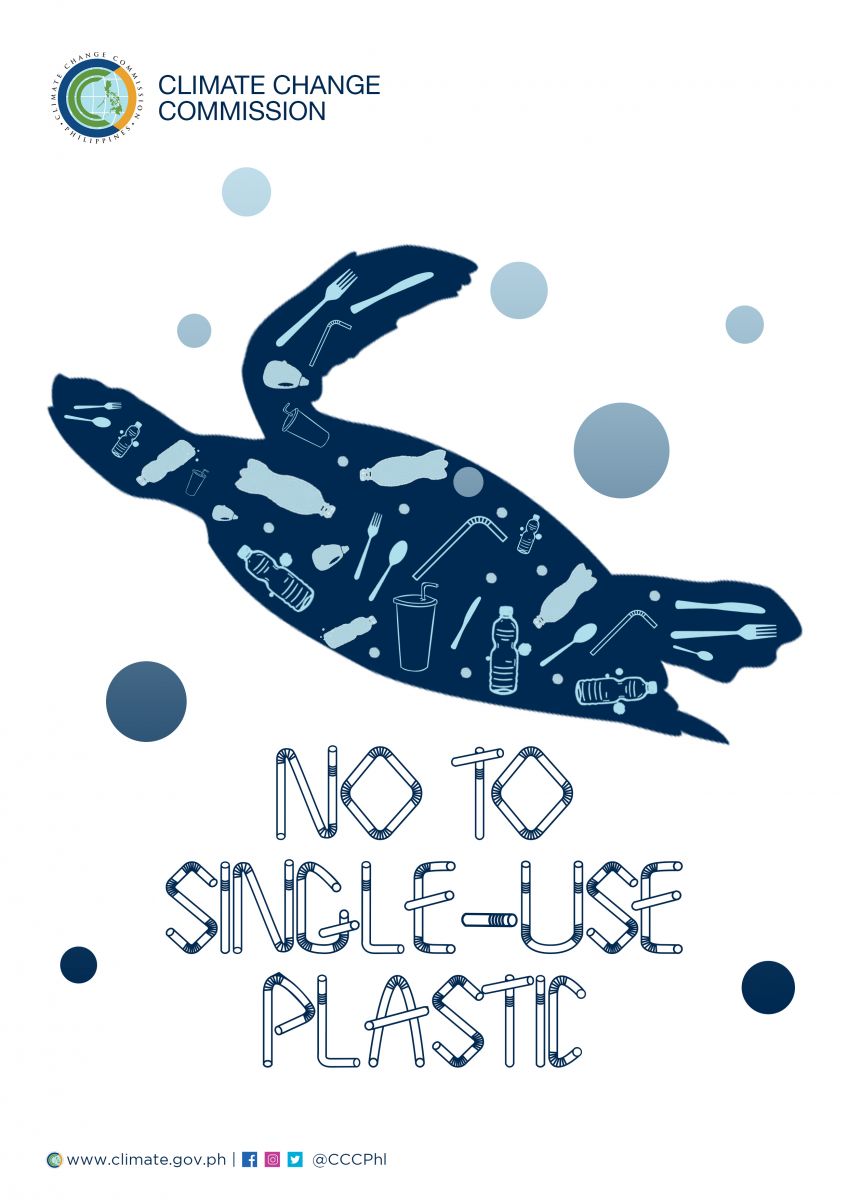
February 18, 2020 Tuesday


MANILA, 19 February 2020 — As part of its ongoing climate action and sustainability efforts, the Climate Change Commission-Climate Change Office (CCC-CCO) imposed a ban on single-use plastics in its office operations.
Office Order No. 2020-010 entitled Office Waste Management System dated 24 January 2020 prohibits the use of disposable plastics, such as plastic straws, stirrers, utensils, food wrappers, grocery bags, instant food packaging, lids, drinking bottles and caps, within the CCC-CCO premises and during the conduct of official meetings, conferences, and other activities.
The Order also provides that unavoidable plastics used in office operations must be reused, recycled, and disposed of properly, in accordance with Republic Act No. 9003, otherwise known as the Philippine Ecological Solid Waste Management Act of 2000.
“Although we have been avoiding single-use plastics ever since, we saw the need to institutionalize this practice to instill sustainable consumption as a way of life among our staff and partners and lessen our carbon footprint from unnecessary plastic use,” CCC Secretary Emmanuel M. De Guzman said.
Plastic wastes exacerbate climate change. When mixed with other wastes in the landfills, plastics release methane, a greenhouse gas that is at least 28 times more potent than carbon dioxide.
According to a report released by the Ocean Conservancy in 2017, the Philippines was among the top plastic-waste producers in the world alongside neighboring Asian countries, China, Indonesia, Vietnam, Sri Lanka, and Thailand.
The CCC has repeatedly called for the private sector to come up with innovative, game-changing, and sustainable measures that would eliminate the problematic or unnecessary single-use plastic packaging.
“Banning single-use plastics is just the first step toward tackling the plastic crisis. Moving forward, there is an urgent need for retailers and manufacturers to take the lead in innovating our production and distribution systems to eliminate plastic wastes,” De Guzman added.